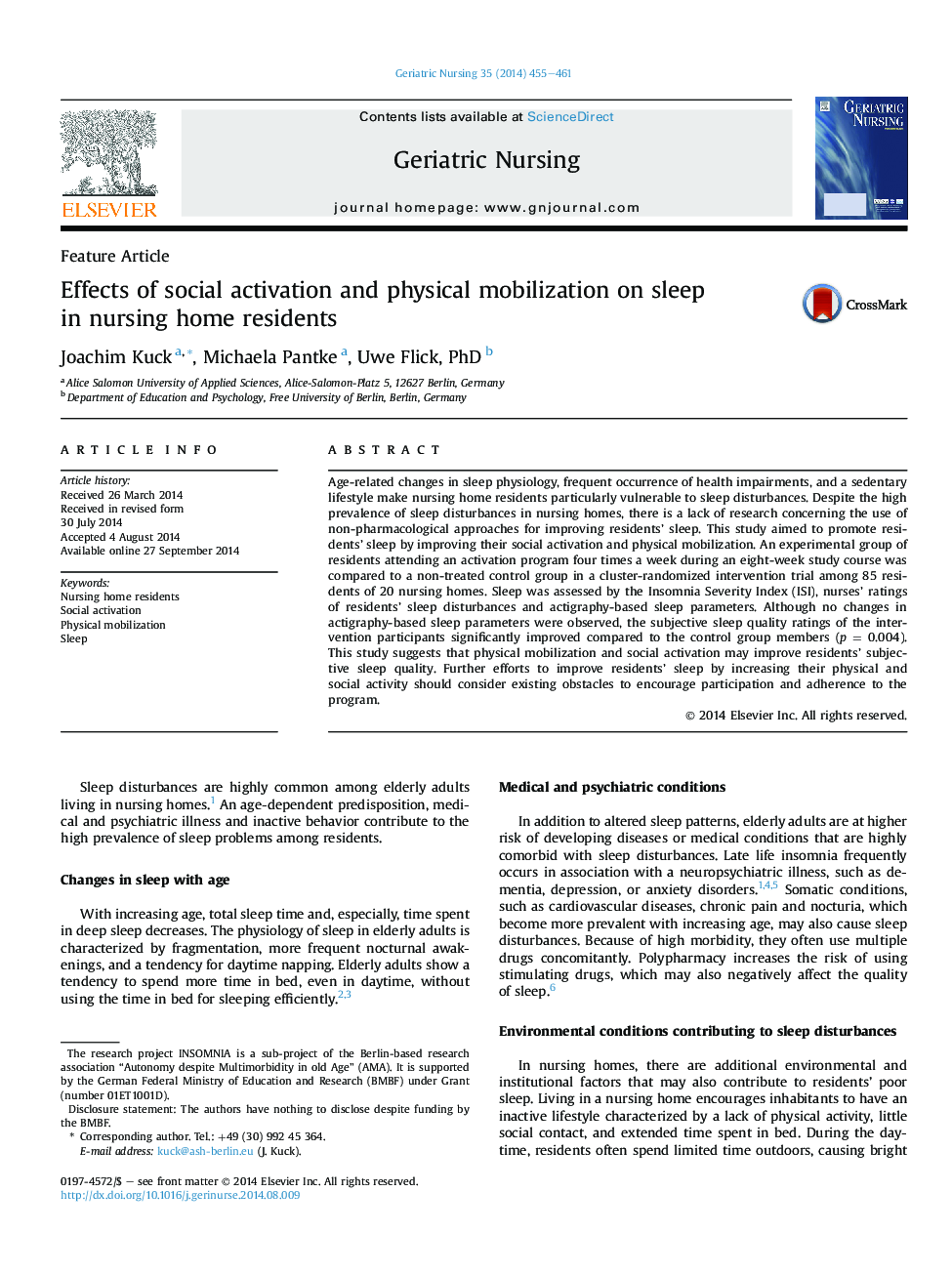| Article ID | Journal | Published Year | Pages | File Type |
|---|---|---|---|---|
| 2648854 | Geriatric Nursing | 2014 | 7 Pages |
Age-related changes in sleep physiology, frequent occurrence of health impairments, and a sedentary lifestyle make nursing home residents particularly vulnerable to sleep disturbances. Despite the high prevalence of sleep disturbances in nursing homes, there is a lack of research concerning the use of non-pharmacological approaches for improving residents' sleep. This study aimed to promote residents' sleep by improving their social activation and physical mobilization. An experimental group of residents attending an activation program four times a week during an eight-week study course was compared to a non-treated control group in a cluster-randomized intervention trial among 85 residents of 20 nursing homes. Sleep was assessed by the Insomnia Severity Index (ISI), nurses' ratings of residents' sleep disturbances and actigraphy-based sleep parameters. Although no changes in actigraphy-based sleep parameters were observed, the subjective sleep quality ratings of the intervention participants significantly improved compared to the control group members (p = 0.004). This study suggests that physical mobilization and social activation may improve residents' subjective sleep quality. Further efforts to improve residents' sleep by increasing their physical and social activity should consider existing obstacles to encourage participation and adherence to the program.
